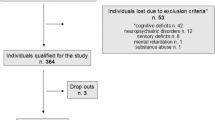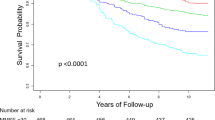Abstract
Background: Cognitive screening measures are widely administered in everyday clinical practice in different geriatric settings. Despite the presence of several extended-like screening tests, Mini-Mental State Examination (MMSE) continues to be largely used not only by neuropsychologists, neurologists, and psychiatrists but also by general practitioners and other health-related specialties.
Aim: We herein provide normative data for the MMSE in a large sample of community-dwelling healthy participants aged over 50 years old stratified by age and education.
Material and Methods: The sample included 925 community-dwelling healthy participants (age range: 50–91 years) of both genders (231 males/694 females) with different educational level (range: 1–16 years). Demographic-related effects were examined for the total MMSE score using hierarchical regression analysis; normative data are presented in mean ± standard deviation and percentile ranks and divided into seven overlap** age tables with different midpoints at 55, 60, 65, 70, 75, 80, and 85 years using the overlap** cell procedure.
Results: Initial analysis did not show any effect of gender but revealed significant correlation between age, education, and total MMSE. Hierarchical regression analysis revealed that education significantly accounted for 17.3% of the total variance in the MMSE with age adding a significant 7.4% to the final model (adjusted R2 = 0.246, F = 151.872, p < 0.001; age: β = −0.286, p < 0.001; education: β = 0.332, p < 0.001). The sample was stratified according to the overlap** cell procedure with regard to age (age groups: 50–60, 55–65, 60–70, 65–75, 70–80, 75–85, 80–91); four educational levels were considered: 1–5, 6–9, 10–12, and 13–16 years.
Conclusions: Current normative data for the Greek version of the MMSE are provided as a useful set of norms for clinical and research practice.
Access this chapter
Tax calculation will be finalised at checkout
Purchases are for personal use only
Similar content being viewed by others
References
Abrahams S, Newton J, Niven E, Foley J, Bak TH (2014) Screening for cognition and behaviour changes in ALS. Amyotroph Lateral Scler Frontotemporal Degener 15(1–2):9–14
Anthony JC, Le Reshe LA, Niar V et al (1982) Limits of the MMSE as a screening test for dementia and delirium among hospital patients. Psychol Med 12:397–408
Folstein MF, Folstein SE, McHugh PR (1975) “Mini-mental state”. A practical method for grading the cognitive state of patients for the clinician. J Psychiatr Res 12(3):189–198
Folstein MF, Robins LN, Helzer JE (1983) The mini-mental state examination. Arch Gen Psychiatry 40(7):812
Fountoulakis NK, Tsolaki M, Chantzi H, Kazis A (2000) Mini Mental State Examination (MMSE): a validation study in Greece. Am J Alzheimers Dis Other Demen 15:342–345
Levin HS, Benton AL, Fletcher JM, Satz P (1989) Neuropsychological and intellectual assessment of adults. In: Kaplan HI, Sadock BI (eds) Comprehensive textbook of psychiatry, vol V. Williams & Wilkins, Baltimore
Llewellyn DJ, Lang IA, Langa KM, Huppert FA (2008) Cognitive function and psychological well-being: findings from a population-based cohort. Age Ageing 37(6):685–689
Mioshi E, Dawson K, Mitchell J, Arnold R, Hodges JR (2006) The Addenbrooke’s Cognitive Examination Revised (ACE-R): a brief cognitive test battery for dementia screening. Int J Geriatr Psychiatry 21(11):1078–1085
Mitchell AJ (2009) A meta-analysis of the accuracy of the mini-mental state examination in the detection of dementia and mild cognitive impairment. J Psychiatr Res 43(4):411–431
Pagonabarraga J, Kulisevsky J, Llebaria G, García-Sánchez C, Pascual-Sedano B, Gironell A (2008) Parkinson’s disease-cognitive rating scale: a new cognitive scale specific for Parkinson’s disease. Mov Disord 23(7):998–1005
Pauker JD (1988) Constructing overlap** cell tables to maximize the clinical usefulness of normative test data: rationale and an example from neuropsychology. J Clin Psychol 44(6):930–933
Roth M, Huppert FA, Tym E, Mountjoy CQ (1988) CAMDEX the Cambridge examination for mental disorders of the elderly. Cambridge University Press, London
Salthouse T (2012) Consequences of age-related cognitive declines. Annu Rev Psychol 63:201–226
Sheehan B (2012) Assessment scales in dementia. Ther Adv Neurol Disord 5(6):349–358
Solias A, Skapinakis P, Degleris N, Pantoleon M, Katirtzoglou E, Politis A (2014) Mini Mental State Examination (MMSE): Determination of cutoff scores according to age and educational level. Psychiatriki 25(4):245–256
Steis MR, Schrauf RW (2009) A review of translations and adaptations of the Mini-Mental State Examination in languages other than English and Spanish. Res Gerontol Nurs 2(3):214–224
Strauss E, Sherman EMS, Spreen O (2006) A compendium of neuropsychological tests: administration, norms and commentary. Oxford University Press, New York
Tangalos EG, Smith GE, Ivnik RJ, Petersen RC, Kokmen E, Kurland LT, Offord KP, Parisi JE (1996) The Mini-Mental State Examination in general medical practice: clinical utility and acceptance. Mayo Clin Proc 71(9):829–837
Wind AW, Schellevis FG, Van Staveren G, Scholten RP, Jonker C, Van Eijk JT (1997) Limitations of the Mini-Mental State Examination in diagnosing dementia in general practice. Int J Geriatr Psychiatry 12(1):101–108
Yesavage JA (1992) Depression in the elderly: how to recognize masked symptoms and choose appropriate therapy. Postgrad Med 91:255–261
Acknowledgments
We would like to thank all subjects for their willingness to participate in the present study.
Conflicts of Interest
There are no conflicts of interest.
Author information
Authors and Affiliations
Editor information
Editors and Affiliations
Rights and permissions
Copyright information
© 2020 Springer Nature Switzerland AG
About this paper
Cite this paper
Mougias, A., Christidi, F., Kaldi, M., Kerossi, MI., Athanasouli, P., Politis, A. (2020). Mini-Mental State Examination: Greek Normative Data Stratified by Age and Education in a Large Sample of 925 Community-Dwelling Healthy Participants. In: Vlamos, P. (eds) GeNeDis 2018. Advances in Experimental Medicine and Biology, vol 1196. Springer, Cham. https://doi.org/10.1007/978-3-030-32637-1_9
Download citation
DOI: https://doi.org/10.1007/978-3-030-32637-1_9
Published:
Publisher Name: Springer, Cham
Print ISBN: 978-3-030-32636-4
Online ISBN: 978-3-030-32637-1
eBook Packages: Biomedical and Life SciencesBiomedical and Life Sciences (R0)




